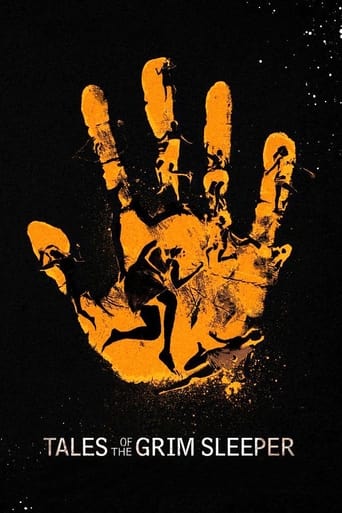

A scary, intriguing look into the life of a(n alleged, since he is yet to be convicted) serial killer through the statements of people who knew him first hand. And that look expands to the neighborhood of South Central, Los Angeles, which almost looks like a third world country place. Very likely, hundreds of women, girls, have been abducted, tortured and killed by this Lonnie David Franklin. Considering the vast amount of evidence that was present very early on, this man could have and should have been taken off the streets pretty much straight away.But Franklin was a man of (relative) stature, and to the L.A.P.D. most black lives appear to be not worth so much. The victims were mostly hookers addicted to crack, so he was even praised by them for 'cleaning the streets', if we may believe his son Chris. The picture that the women (prostitutes who knew Franklin, but also mothers of victims) paint throughout the documentary leaves hardly a shred of hope for the citizens of South Central. It is a community in which people seem to look out only for themselves, and in which drugs, violence and gangs get the better of many, and women like Margaret Prescod are admirable, yet rare voices for justice.This is a grim tale, which is not over, and for the people of South Central, things are looking bleak as ever. The only positive outcome is that the Lonnie David Franklin is off the streets of L.A. forever - I at least want to assume that he will be convicted.9 out of 10.
... View MoreThis is a film that is shocking to see because it lays bare the underside of American society that few are willing to countenance. Broomfield speaks with an array of black residents of South L.A., and uncovers a mind-bending culture of violence, anti-social behavior and sexual deviance. If nothing else, this film shows what happens when society and culture descend into a kind of nihilistic madness. Some characters, admirably, maintain a sense of good humor amidst the wasteland.However, Broomfield resorts to the usual politically correct bromides, allowing members of an activist group an open mic to condemn the police for the killer's actions, with no discussion of how culture and the attitudes of members of the community have contributed to the outrageous crimes that Franklin got away with for so long. This is, at best, a highly simplistic analysis of the situation. One woman discusses, almost proudly, how members of the community refuse to cooperate with the police, and will virtually never report a crime. Franklin's son discusses how his family members largely disowned him for turning in his murderous father. Franklin's friends discuss participating in appalling acts of rape and sexual humiliation against prostitutes. Everyone has a very casual attitude towards morals, behavior, justice, and sometimes human life in general. Broomfield should have explored this in more detail, but instead fails to draw the obvious connection that the police, racism, and "society" cannot exclusively be blamed for these disastrous cultural failings, and thus comes close to embracing the kind of moral relativism and excuse-making that has perhaps been as harmful to the underclass as racism and bad policing may have been in the past.This is still a film worth seeing, but if only Broomfield could have taken off his ideological blinders and noticed what was happening right in front of him, he could have offered a more sociologically relevant and honest film.
... View MoreThis documentary has so many holes. Nick Broomfield is an idiot who doesn't listen to the people he interviews. He needs to stop making documentaries. Example: He'll play a 911 call but goes no further to explain the van mentioned by the caller. Why would the killer call 911 and report his own van and license plate? He asks frustratingly DUMB questions (Often more than once per interview). He even runs a stop sign while driving around. He's inept and I can't stand the way this movie was done. Could have been great. But he made it unbearable with far more questions than answers. What a shame. These people deserve to have their story told by someone who knows what they're doing.
... View MoreThis documentary is about Lonnie Franklin who killed 10 women over the course of 25 years in South Central LA.The documentary served as an attack on the LAPD's inability to do the right thing, to investigate and release warnings to the public.It is also a testament to Nick Broomfield's persistence, as an outsider sporting a big microphone and a funny accent he was able to wear down and break communication barriers, witnessed by the evolving stories of those interviewed. Once inside a subculture within the gnarly South Central LA district, he reveals a full spectrum voices that speak the message of outrage from victim's loved ones and their supporters, to witnesses of sexual deviancy in the form of Franklin's friends.
... View More